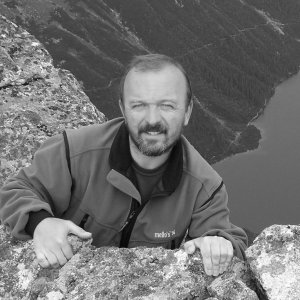Presented By: Center for Russian, East European, and Eurasian Studies
CREES Noon Lecture. The Polish Athens: Zakopane as a Center of Polish Culture
Maciej Krupa, journalist and mountain guide

The Zakopane of the late 19th and early 20th centuries, a period referred to as “The Young Poland,” is of particular importance in Polish culture. It was the freest place in Poland at the time, partitioned by three neighboring empires – a place where artists, scientists, social, and political activists met. They went there to rest and rejuvenate; they roamed the Tatra Mountains, discussed, created, and conspired. Visitors at this time included the statesmen Józef Piłsudski and Roman Dmowski; writers Henryk Sienkiewicz and Stefan Żeromski; doctor Kazimierz Dłuski; and aristocrat Władysław Zamoyski. Anyone who meant anything in the spiritual life of the Poles frequented Zakopane, adding to the aura of this extraordinary place. Among the visitors were also people who became well-known in America: Helena Modjeska, Ignacy Jan Paderewski, Artur Rubinstein, Bronisław Malinowski, and Joseph Conrad. Thanks to all of them, this small highlander village became known as the "Polish Athens” at a time when Zakopane achieved its spiritual peak.
Maciej Krupa, a journalist and mountain guide who lives and works in Zakopane, will discuss the importance of this time and place in Polish culture and history. Krupa has authored numerous publications related to Zakopane and the Tatra Mountains and is the co-founder of the local weekly newspaper "Tygodnik Podhalanski."
This lecture is related to “100 Years of Polish Independence: Zakopane 1918,” an exhibition of photographs from the archives of the Tatra Museum in Zakopane, Poland. The Copernicus Program in Polish Studies has curated the exhibit and organized public lectures in collaboration with the Tatra Museum, the Adam Mickiewicz Institute in Warsaw, and Culture.pl as part of POLSKA 100, an international cultural program commemorating the centenary of Poland regaining Independence. It is financed by the Ministry of Culture and National Heritage of the Republic of Poland as part of the multi-year program NIEPODLEGŁA 2017-22.
If you are a person with a disability who requires an accommodation to attend this event, please reach out to crees@umich.edu at least 2 weeks in advance of this event. Please be aware that advance notice is necessary as some accommodations may require more time for the university to arrange.
Maciej Krupa, a journalist and mountain guide who lives and works in Zakopane, will discuss the importance of this time and place in Polish culture and history. Krupa has authored numerous publications related to Zakopane and the Tatra Mountains and is the co-founder of the local weekly newspaper "Tygodnik Podhalanski."
This lecture is related to “100 Years of Polish Independence: Zakopane 1918,” an exhibition of photographs from the archives of the Tatra Museum in Zakopane, Poland. The Copernicus Program in Polish Studies has curated the exhibit and organized public lectures in collaboration with the Tatra Museum, the Adam Mickiewicz Institute in Warsaw, and Culture.pl as part of POLSKA 100, an international cultural program commemorating the centenary of Poland regaining Independence. It is financed by the Ministry of Culture and National Heritage of the Republic of Poland as part of the multi-year program NIEPODLEGŁA 2017-22.
If you are a person with a disability who requires an accommodation to attend this event, please reach out to crees@umich.edu at least 2 weeks in advance of this event. Please be aware that advance notice is necessary as some accommodations may require more time for the university to arrange.